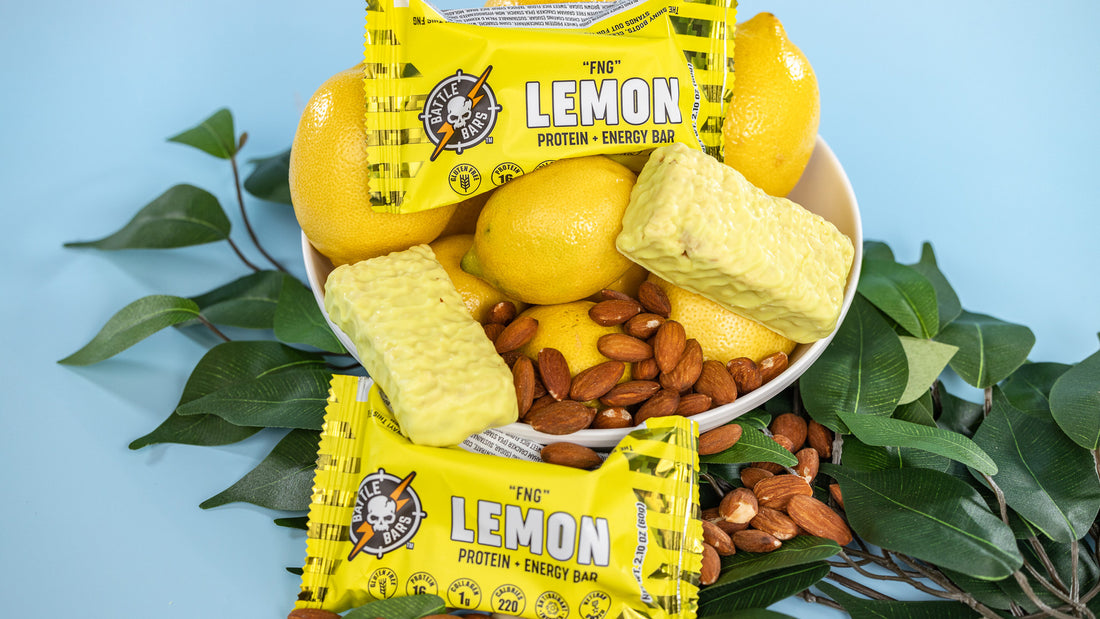Are you tired of feeling guilty about your sweet tooth? Are you trying to cut down on sugar, but can't seem to shake the cravings? Maybe you've turned to artificial sweeteners to satisfy your sweet tooth without the guilt. Chugging Code Red Zero make ya feel better? Before you reach for that sugar-free soda or protein snacks which boast “Zero sugar”, take a closer look to consider the potential risks of consuming artificial sweeteners.
Artificial Sweeteners Are Better Than Sugar, Right?
Artificial sweeteners are synthetic substances that are used to sweeten food and beverages. They’re often marketed as a healthier alternative to sugar, but there is mounting evidence that suggests they may not be as safe as we once thought.
Are Artificial Sweeteners Bad For You
For starters, some studies have linked artificial sweeteners to an increased risk of obesity and type 2 diabetes. This is because artificial sweeteners can disrupt the body's ability to regulate blood sugar levels, which can lead to weight gain and insulin resistance. So, ironically, consuming artificial sweeteners in an effort to lose weight or manage blood sugar could actually backfire.
But that's not all. Some artificial sweeteners, such as aspartame and saccharin, have been linked to an increased risk of cancer. While the evidence is not conclusive, it's still cause for concern. Additionally, some people may experience headaches, dizziness, or digestive issues after consuming artificial sweeteners.
Alternative Sweeteners
So, what's the solution? Well, the obvious answer is to cut down on sugar and opt for natural sweeteners like organic cane sugar (which you can find in a Battle Bar), honey, maple syrup, stevia, or even monk fruit. But if you're still craving something sweet, try reaching for a piece of fruit or a small serving of dark chocolate. It's all about finding a balance that works for you and your body.
List Of Artificial Sweeteners To Avoid
Here's a list of some artificial sweeteners that have been linked to potential health risks:
- Aspartame: This sweetener is commonly used in diet sodas, sugar-free gum, and other low-calorie products. Some studies have linked aspartame to an increased risk of cancer, neurological disorders, and other health problems.
- Saccharin: Saccharin is often used as a sugar substitute in baked goods, canned fruits, and other foods. It has been linked to an increased risk of bladder cancer in some animal studies.
- Sucralose: Sucralose is a sweetener that is commonly used in diet drinks and other low-calorie products. Some studies have suggested that it may alter gut microbiota and insulin response, and increase the risk of obesity and type 2 diabetes.
- Acesulfame Potassium (Ace-K): Ace-K is a calorie-free sweetener that is often used in soft drinks, desserts, and other foods. Some studies have suggested that it may negatively affect thyroid function.
- Neotame: Neotame is a newer artificial sweetener that is used in a variety of foods, including baked goods and soft drinks. It is chemically similar to aspartame and has been linked to potential health risks, including an increased risk of cancer.
While the evidence linking these sweeteners to health risks is not conclusive, it's still important to be mindful of your intake and choose natural sweeteners when possible. If you have concerns about your use of artificial sweeteners, you may want to speak with a healthcare professional or a registered dietitian for guidance.
At Battle Bars, we're committed to NEVER using artificial sweeteners in any of our products. We believe that natural is always the best option, which is why we sweeten all of our bars with organic cane sugar and other natural sources. Our protein snack bars are also gluten-free and generally better for you than your average snack bar.
If you want to fuel your body with the power of nature rather than unhealthy artificial ingredients, try a Battle Bar today!
References:
Suez J, Korem T, Zeevi D, et al. Artificial sweeteners induce glucose intolerance by altering the gut microbiota. Nature. 2014;514(7521):181-186. doi:10.1038/nature13793
Pereira MA, Swain J, Goldfine AB, Rifai N, Ludwig DS. Effects of a diet that mimics the Mediterranean diet on glycemic control and cardiovascular risk factors in type 2 diabetes. Diabetes Care. 2011;34(11):2400-2405. doi:10.2337/dc11-0456
Schernhammer ES, Bertrand KA, Birmann BM, Sampson L, Willett WC, Feskanich D. Consumption of artificial sweetener- and sugar-containing soda and risk of lymphoma and leukemia in men and women. Am J Clin Nutr. 2012;96(6):1419-1428. doi:10.3945/ajcn.111.030833







